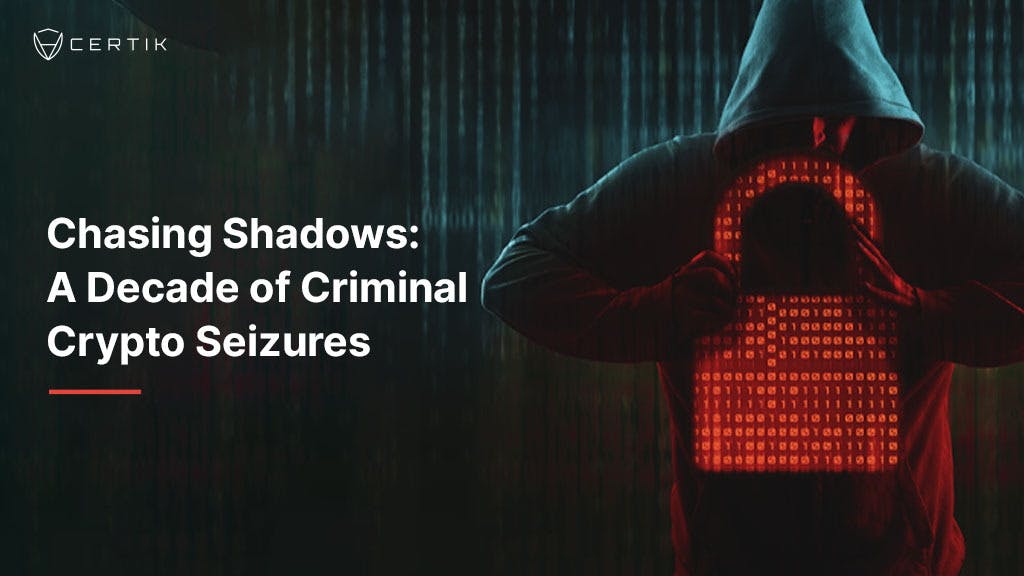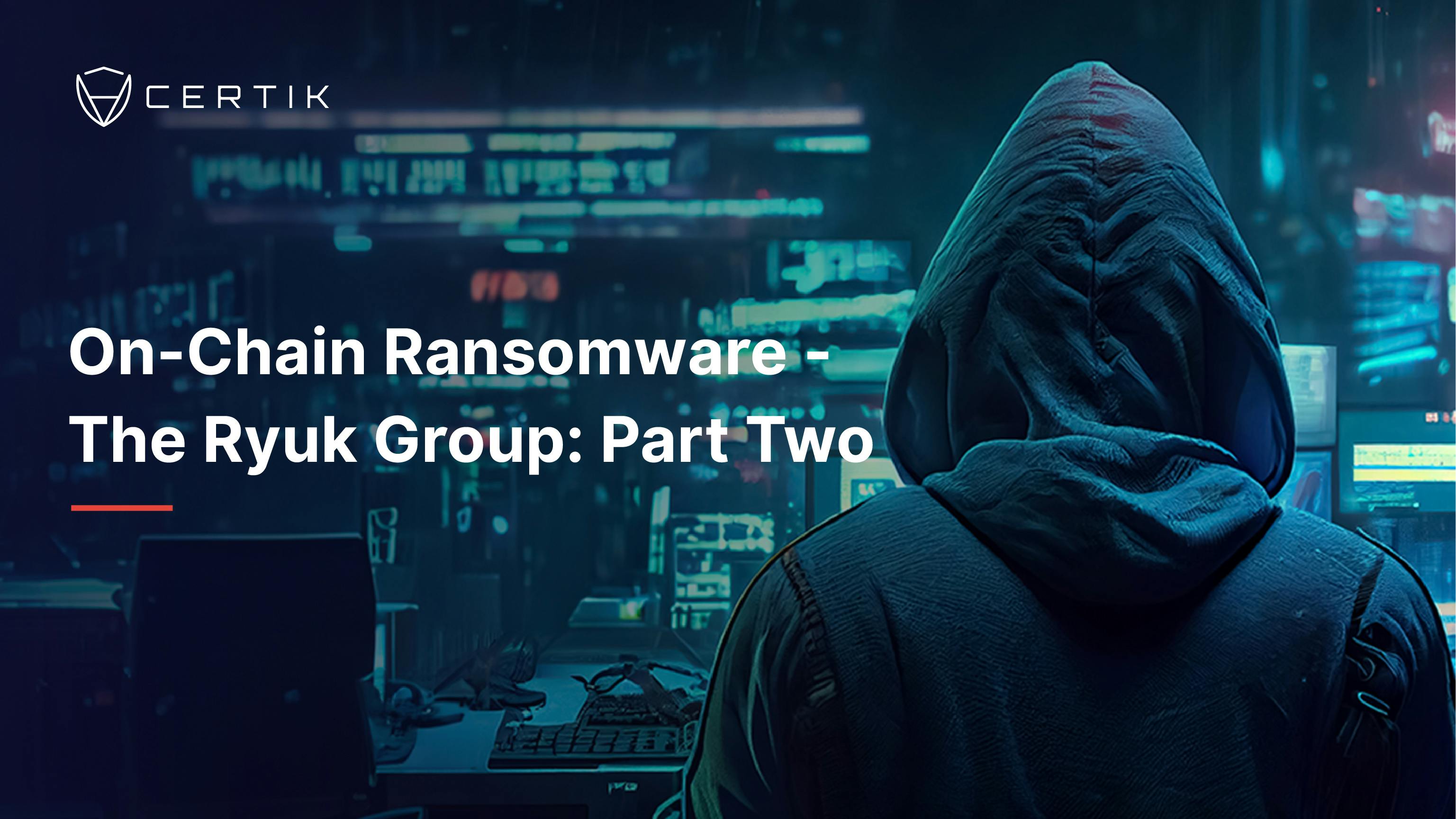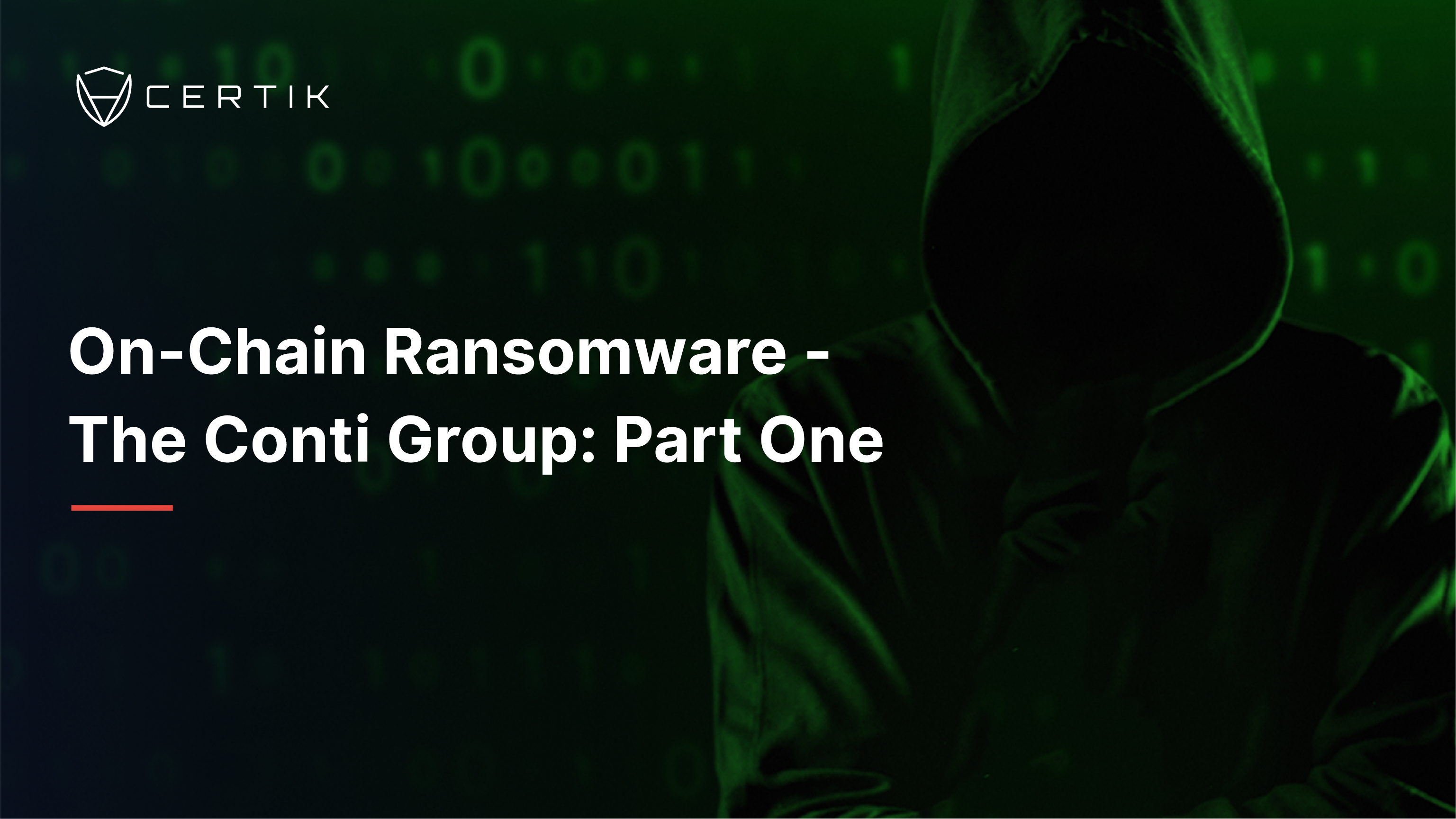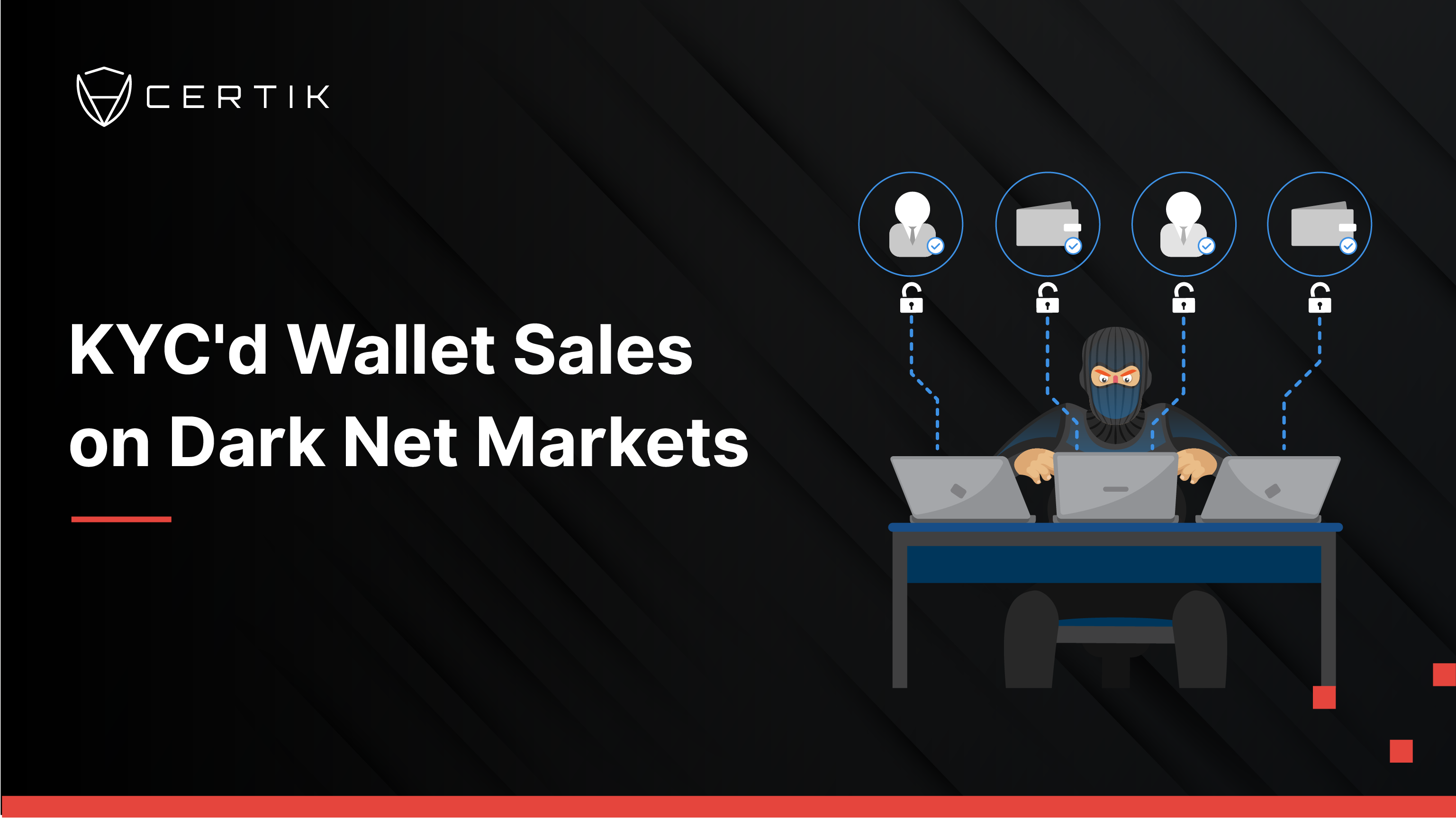As cryptocurrency has risen in prominence over the past decade, governments worldwide have increasingly targeted illicit funds and criminal activity in the space. This pursuit has included arresting individuals involved and confiscating vast amounts of digital assets.

1. PlusToken Ponzi
On November 19, 2022, Chinese authorities reported the seizure of assets worth over $4.2 billion after a crackdown on the PlusToken Ponzi scheme. This fraudulent operation ran from May 2018 to June 2019 and is believed to have victimized over two million people.
The PlusToken scheme resulted in the arrest of 109 individuals, 15 of whom have been convicted and sentenced to prison terms ranging from two to eleven years.
The seized assets were substantial, comprising a variety of cryptocurrencies:
- 194,775 BTC
- 833,083 ETH
- 1.4 million LTC
- 27.6 million EOS
- 74,167 DASH
- 487 million XRP
- 6 billion DOGE
- 79,581 BCH
- 213,724 USDT
Had these assets been sold at the time of Bitcoin's peak value, they would have fetched an estimated $15 billion. However, Wu Blockchain reports that local Chinese media have indicated that the assets were sold around the time of the seizure. The funds were then forfeited to the national treasury in accordance with the court's ruling.
2. Silk Road
In 2013, a formative moment in cryptocurrency history played out when U.S. authorities shut down the infamous dark web marketplace Silk Road. Often referred to as the "Ebay of the dark web," the Silk Road was founded by Ross Ulbricht and became a notorious platform among Tor users. It exclusively accepted Bitcoin (BTC) as payment to preserve user privacy and specialized in illegal commodities such as weapons and narcotics.
A total of 173,991 BTC was seized from Silk Road, which included a 2013 seizure of 144,336 BTC and an earlier confiscation of 29,655 BTC. The crackdown led to the shutdown of the Silk Road domain, although it was soon replaced by Silk Road 2. This successor was also shut down in a 2014 joint operation between the FBI and Europol.
At the time, this BTC was valued at $33.6 million. However, the total could have been even higher if not for a theft (see the section on James Zhong below) which led to the loss of 50,676 BTC the previous year. At Bitcoin's peak value of $69,000, this seized haul would have been worth a staggering $12 billion.
To put this figure into perspective, compare it to the market cap of South Korean electronics manufacturer LG, which stands at $10.07 billion. The value of the seized BTC from Silk Road alone surpasses that of an entire global corporation.
The amount of BTC seized from Silk Road would position the DOJ (U.S. Department of Justice) as the second-largest holder of Bitcoin today, behind only Satoshi Nakamoto (believed to hold 1.1 million BTC) and the cryptocurrency exchange Binance (with 600,000 BTC across multiple wallets).
 Top 10 largest holders of BTC by individual wallet balance. Source: BitInfoCharts
Top 10 largest holders of BTC by individual wallet balance. Source: BitInfoCharts
In 2015, Ross Ulbricht, the mastermind behind Silk Road, was sentenced to life without parole in the U.S. and was ordered to pay approximately $183 million in restitution. A complex legal arrangement followed, involving the 50,676 BTC stolen from Silk Road. Ulbricht relinquished any claims to the stolen BTC; in return, a portion would be applied to his $183 million debt to the government.
3. Ilya Lichtenstein and Heather Morgan (BitFinex)
On August 2, 2016, the BitFinex exchange faced what was, at that time, the largest hack in cryptocurrency history, losing 119,576 BTC, equivalent to around $72 million. BitFinex promptly posted an announcement on their blog regarding the breach and the immediate actions they were undertaking.

Although only some users lost their BTC, BitFinex made the decision to reduce everyone’s balance by 36% and gave them 1 BFX for every dollar they “lost.” After eight months, BitFinex secured enough funding to redeem all BFX tokens for lost funds or for shares in iFinex, their parent company.
In 2019, authorities arrested two Israeli brothers for the hack against the exchange and for other related cybercrimes, but were unable to recover the funds taken from BitFinex users.
In February 2022, Ilya Lichtenstein and his wife, Heather Morgan, were arrested in New York for allegedly laundering the stolen BitFinex funds. The DOJ's charges only related to laundering, fueling speculation as to whether they were involved in the exploit itself or had purchased the Bitcoin at a discount.
At the time of their arrest, the 119,576 BTC was worth roughly $4.5 billion. The couple was accused of laundering 25,000 BTC using a method known as 'peeling,' a process of sending small crypto amounts to many different wallets to disguise its origin.
Investigators traced the BTC to accounts controlled by Lichtenstein and Morgan, and courts authorized a search that revealed private keys to the wallet containing the stolen BitFinex funds. When seized, the wallet still contained approximately 94,000 BTC, valued at $3.6 billion.
The DOJ’s press release detailed how Lichtenstein and Morgan attempted to launder the BTC by purchasing various gift cards.
 Chart: Attempted money laundering channels for Lichtenstein and Morgan. Source: DOJ
Chart: Attempted money laundering channels for Lichtenstein and Morgan. Source: DOJ
4. James Zhong
On November 7, 2022, the U.S. Department of Justice made a public announcement concerning the conviction of hacker James Zhong, who was connected to a 2012 exploit of the Silk Road. Zhong identified a vulnerability in Silk Road that enabled him to accumulate 50,676 BTC, valued around $500,000 at the time of the theft.
The exploit involved manipulation of Silk Road's withdrawal system. Zhong would deposit between 200 to 2,000 BTC, then immediately make several withdrawal requests simultaneously. This process was repeated approximately 140 times in quick succession, depleting Silk Road's Bitcoin holdings. The Silk Road's wallet was believed to hold a maximum of 50,000 BTC at any given time.
Fast forward nine years to November 2021, when law enforcement raided Zhong’s residence. In a hidden compartment in the floor, investigators discovered a USB drive containing the stolen Bitcoin from Silk Road. At that point, Bitcoin was hovering around its all-time high, with the recovered funds worth $3.3 billion. However, since the seizure, Bitcoin's value has dipped considerably, and the amount is now estimated to be close to $1.5 billion at the current price of $29,300 per BTC.
Zhong's downfall can be attributed to several mistakes that left a trail for authorities to follow. One of those errors was his report of a home burglary in which a significant amount of BTC was stolen. This incident played a crucial role in his eventual arrest.

 Hidden cash and precious metals seized by Department of Justice. Source: DOJ
Hidden cash and precious metals seized by Department of Justice. Source: DOJ
5. British Police Seize $410 Million of Cryptocurrency
The Metropolitan Police made headlines in June 2021 with the UK’s largest ever cryptocurrency seizure. The Met seized £114 million ($158 million) worth of cryptocurrency after receiving intelligence on the transfer of criminal assets. A 39 year old woman was arrested for the offense and subsequently released on bail.
Less than a month later, in July 2021, the 39 year old was questioned under caution after police seized another $250 million in cryptocurrency.
Despite the record setting cryptocurrency seizures, London’s Met have released limited information, including the details of what cryptocurrency tokens were seized.
6. Valhalla
In 2016, the Finnish Customs agency, operating under the purview of the Ministry of Finance, seized 1,666 BTC from dark web marketplace Valhalla. The marketplace has operated since 2013 and is known for selling illicit substances in exchange for Bitcoin as payment. The BTC was worth approximately $950,000 when it was seized and would now be worth around $48.81 million at $29,300/BTC. Finnish Customs conducted a drug raid in connection with the operation against Valhalla. Three individuals were arrested and 1,666 BTC was seized along with drugs worth over $1 million.
7. Bitzlato
The most recent large scale seizure was announced on 18 January, 2023. The DOJ made a live public address to announce the arrest of Anatoly Legkodymov, a senior executive at crypto exchange Bitzlato. The Bitzlato exchange is accused of allowing large quantities (approximately 1 billion Euros) of criminal assets to be off-ramped through their platform.
 Result of Europol’s Bitzlato investigation. Source: Europol
Result of Europol’s Bitzlato investigation. Source: Europol
Conclusion
No matter how long ago the incident, or how well hidden a USB drive might be, law enforcement are highly incentivized to bring crypto-rich criminals to justice. The U.S. DOJ has been particularly proactive in pursuing criminals and seizing huge quantities of cryptocurrency.
These criminal acts have not only siphoned billions of dollars from various platforms and thousands of users, but have also contributed to an unwelcome reputation for the crypto space. The perception of cryptocurrency as a haven where criminals can launder funds serves as a reminder of the need for robust security measures and ethical practices if the benefits of crypto and Web3 are to be brought tot the wider world.



